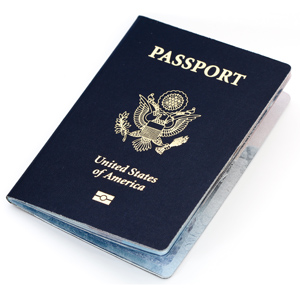SCOTUS backs presidential power to recognize foreign sovereign in 'Jerusalem, Israel' passport case

Image from Shutterstock.
The president has the exclusive power to grant formal recognition to a foreign sovereign, and that extends to the power to control the nation listed as the birthplace on passports, the U.S. Supreme Court has ruled.
The 6-3 decision (PDF) overturns a federal law that allows U.S. citizens born in Jerusalem to list Israel as their birthplace on their passports. The case is Zivotofsky v. Kerry.
The president has exclusive power to grant formal recognition to a sovereign and Congress can’t pass a law directly contradicting that power, Justice Anthony M. Kennedy wrote in the majority opinion. “This is not to say Congress may not express its disagreement with the president in myriad ways,” Kennedy wrote. “For example, it may enact an embargo, decline to confirm an ambassador, or even declare war. But none of these acts would alter the president’s recognition decision.”
The State Department directs its employees to record the passport place of birth as the country having sovereignty over an area. The executive branch does not recognize any country as having sovereignty over Jerusalem, and passports report the birthplace of U.S. citizens born there as simply “Jerusalem.” When President George W. Bush signed the passport provision, part of a broader foreign policy law, he said it would be unconstitutional if it were considered mandatory rather than advisory.
The Supreme Court ruled in the case of Menachem Binyamin Zivotofsky, who was born in Jerusalem in 2002. His parents, U.S. citizens, sued on his behalf after being turned down for a passport listing their son’s birthplace as “Jerusalem, Israel.”
Kennedy’s majority decision was joined by Justices Ruth Bader Ginsburg, Stephen G. Breyer, Sonia Sotomayor and Elena Kagan. Justice Clarence Thomas joined the majority in part and dissented in part, saying he agreed the law was unconstitutional as applied to passports, but not as applied to consular reports of births abroad.
A dissent by Chief Justice John G. Roberts Jr. said he wanted to “underscore the stark nature of the court’s error on a basic question of separation of powers.”
“Today’s decision is a first,” he wrote. “Never before has this court accepted a president’s direct defiance of an act of Congress in the field of foreign affairs.” His dissent was joined by Justice Samuel A. Alito Jr.
In the principal dissent, Justice Antonin Scalia said the passport law provides symbolic support to Israel’s claim of sovereignty over Jerusalem, but it doesn’t amount to actual recognition. The majority, he said, has ruled the president has power not only to make a formal recognition of sovereignty, but also to control formal statements by the executive branch on the issue.
“It is a leap worthy of the Mad Hatter to go from exclusive authority over making legal commitments about sovereignty,” Scalia wrote, “to exclusive authority over making statements or issuing documents about national borders. The court may as well jump from power over issuing declaratory judgments to a monopoly on writing law-review articles.”
Scalia’s dissent was joined by Roberts and Alito.



